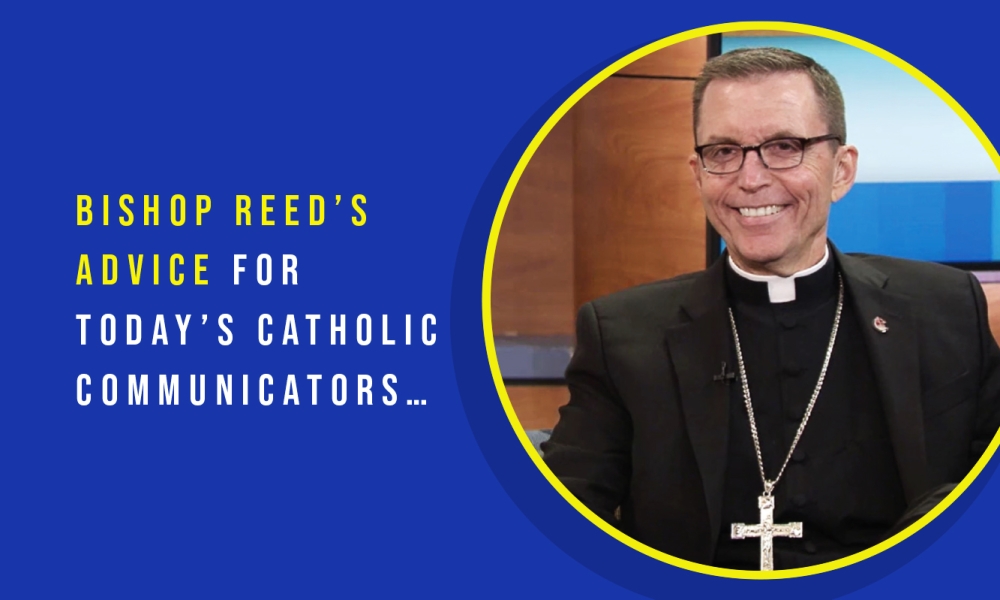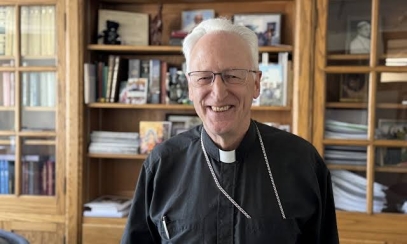
Be bold in your proclamation of the Gospel
Since I first heard the contemporary expression, Content Evangelist, I have thought it relevant and a very fitting term, especially in today’s digital age. Companies and businesses have been using the term “evangelist” as a way of humanizing their marketing efforts since the late 1990s. But for us, the Good News isn’t just a product or service. It’s a Person. And that makes it very personal.
As disciples of Jesus Christ, we know the Word of God and the message of the Gospel is eternal. However, how we communicate this message is constantly evolving. As disciples ourselves, leading communication for dioceses, it is incumbent on us to be trained and experienced players in content evangelism. We must be credible and knowledgeable witnesses, working alongside our bishop to bring the Gospel to the hearts of the people we serve. Our communion in the Church, both temporal and eternal, relies on our willingness to be credible and authentic witnesses to the Truth.
The power of prayer and the efficacy of the sacraments are a solid foundation for us. As we continue to progress in the way we communicate the Gospel, we can never forget our roots in prayer and sacraments. The Word of God and the message of the Gospel will forever remain true and salvific. The sacraments confer God’s grace upon us, and the power of prayer will continue to sustain us in times of need.
But as times change, so must our approach to evangelizing communication.
As Catholics, we have been blessed with a rich tradition of evangelism. The bishop of a diocese can be seen as the chief evangelist, but each one of us has a role to play in spreading the Gospel.
In our work, in order to be effective in communicating the message of the Gospel, we must be confident in our Catholic identity. We cannot simply call ourselves Catholic, but we must also be Catholic in the example of our lives. Our witness to the world must be one of authenticity, of holiness, of charity.
When I first began my work at the CatholicTV Network, I knew it was important to embrace the latest technology. Streaming media, YouTube, Facebook, Twitter – you name it, we had to use it. Our audience wants to connect with us on their terms, and we need to be where they are. So, whether it’s cutting-edge web design or the latest application, we must continually adapt, making sure we’re serving our audience in the best way possible.
Be bold in your proclamation of the Gospel, while living in a way that brings glory to God.
Bishop Reed’s advice for today’s Catholic communicators…
- Know your limits in terms of finances, staffing, time.
- Don’t attempt to reinvent the wheel. Find the most effective means to reach people, and use these avenues and technologies.
- The expression, “a picture is worth a thousand words” is often true. Plan good photography that captures the moment. Don’t miss the chance to have someone, preferably a professional, record a significant number of images of every important event and even some quieter moments.
- A well-written title, subtitle or caption serves to draw people’s attention to your work.
- Aside from special presentations and Cathedral events, avoid lengthy videos.
- Don’t be afraid to focus on the basics of the faith in articles, press releases, and photos and videos. Never assume the terms you use and topics you introduce will be fully understood, or that connections will be made. Respectfully make those connections and clarifications, in the spirit of the New Evangelization.
- Never forget that you are communicators in the service of the Church, and that kindness and generosity of spirit go a long way. Your smile and demeanor, your respectful discourse in person or online, your daily prayer and intercession for those who are struggling, your appreciation for God’s holy Word, your gratitude for the sacraments and the gift of faith … all of these communicate the seriousness and passion you have for your work, and the genuineness with which you communicate the Good News of Jesus and his body,
the Church.
Bishop Reed is Auxiliary Bishop of the Archdiocese of Boston, President/CEO of Catholic TV, and Chairman of the USCCB’s Committee on Communications


